Badi Soch: Pakistan’s next government
This daily column includes Gateway House’s Badi Soch – big thought – of the day’s foreign policy events. Today’s focus is on the elections and new government in Pakistan.

This daily column includes Gateway House’s Badi Soch – big thought – of the day’s foreign policy events. Today’s focus is on the elections and new government in Pakistan.
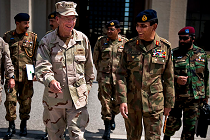 Courtesy: United States Navy
Courtesy: United States Navy
Gateway House’s Ambassador Neelam Deo, in a debate, titled ‘The civil-military equation in Pakistan has begun to tilt in favour of civilians,’ argues in her closing remarks that Pakistan will need sympathy and support as it confronts the complex choices that the democratisation process continually throws up.
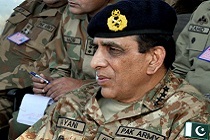 Courtesy: Pakistan97/WikimediaCommons
Courtesy: Pakistan97/WikimediaCommons
Gateway House’s Ambassador Neelam Deo, in a debate, titled ‘The civil-military equation in Pakistan has begun to tilt in favour of civilians,’ argues in her rebuttal that the changes in Pakistan resemble a one-step-forward-and-two-steps-backwards process rather than a move up to the next level.
 Courtesy: Benchill/WikimediaCommons
Courtesy: Benchill/WikimediaCommons
The national election in Pakistan looks like a game of polarisation, but if democracy is meant to provide some relief and prosperity, all political parties have flopped, bottom up. The field is now wide open, and anything can happen - including a hung parliament.
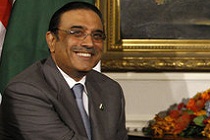 Courtesy: Eric Draper/WikimediaCommons
Courtesy: Eric Draper/WikimediaCommons
With Pakistan geared for a defining general election scheduled for May 11, Council on Foreign Relations' Daniel Markey, in a debate, titled ‘The civil-military equation in Pakistan has begun to tilt in favour of civilians,’ argues for the motion.
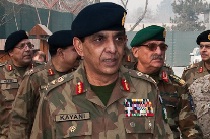 Courtesy: U.S. Army/WikimediaCommons
Courtesy: U.S. Army/WikimediaCommons
With Pakistan geared for a defining general election scheduled for May 11, Gateway House’s Ambassador Neelam Deo in a debate, titled ‘The civil-military equation in Pakistan has begun to tilt in favour of civilians,’ argues against the motion.
The military withdrawal of U.S. troops from Afghanistan in 2014 is likely impact both South and Central Asia. Gateway House interviews former U.S. envoy to Afghanistan Karl Eikenberry, who also served as a military officer in Afghanistan, to discuss the challenges and opportunities in post-2014 Afghanistan.
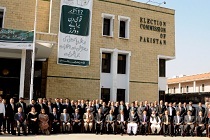 Courtesy: Election Commission of Pakistan
Courtesy: Election Commission of Pakistan
Pakistan’s Chief Election Commissioner, Fakhruddin G. Ebrahim, faces a host of challenges as he oversees the transition of the country’s first civilian government to complete its full five-year term. Will he be able to overcome the hurdles and ensure the free and fair polls Pakistan has so far been deprived of?
 Courtesy:
Courtesy:
D. P. Satish in his review of Rahul Pandita’s latest book writes that it is a bold attempt at voicing despair about a nation that mouths lofty platitudes but does little to protect its persecuted communities.
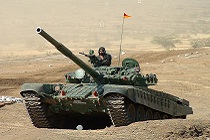 Courtesy: Chanakyathegreat/WikimediaCommons
Courtesy: Chanakyathegreat/WikimediaCommons
After each terror attack in india, there are strident demands for military action against Pakistan. ‘Surgical’ strikes and limited war in a bilateral nuclear age are not really options. What is needed is more decisive action on non-military fronts